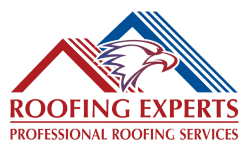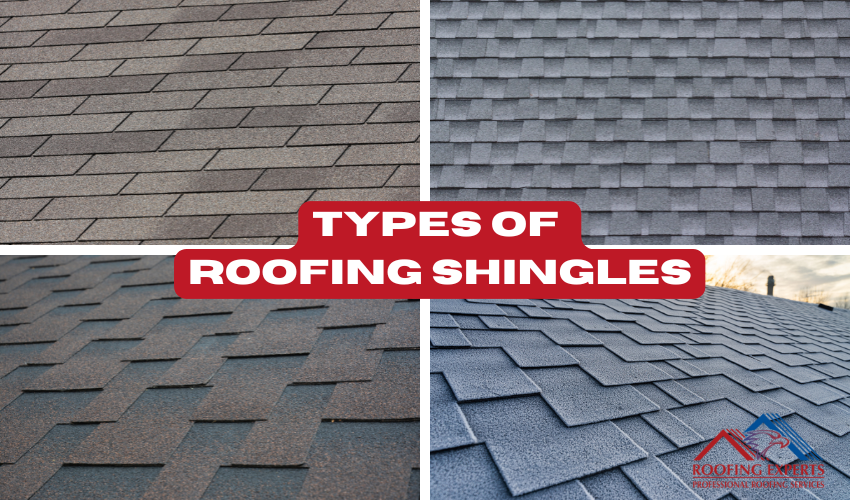Are you trying to find out what type of shingle is best for your home?
Choosing the right asphalt shingles for your roof is crucial for durability, curb appeal, and energy savings. If you live in the Low Country, it is absolutely crucial that you select shingles that can withstand hurricanes and strong winds.
In this article, you’ll discover the main shingle categories, compare cost and lifespan, learn how to select by climate and style, explore cutting-edge materials, and get clarity on the most common homeowner questions.
Whether you’re replacing a weathered roof or planning new construction, understanding asphalt, metal, tile, wood, and synthetic shingles will empower you to make an informed choice that stands up to your budget, local conditions, and design goals.
What Are the Main Types of Roofing Shingles?
The most popular roofing material in the United States is the asphalt shingle. Classic asphalt shingles are often called “3 Tab Shingles” and look like rectangular bricks you are most likely accustomed to. Over the years, technology has advanced and most reputable roofing companies install archteicutral asphalt shingles or standing seam metal roofs.
All this to say, shingle roofing may seem straightforward, what you might quickly discover is there’s an entire menu of options, each with unique strengths, weaknesses, and costs. Picking the right one isn’t just about style; it’s about how well the material stands up to climate, budget, and long-term goals. Here are the main types every homeowner should understand before choosing
1. Three Tab Asphalt Shingles

Asphalt shingles dominate the American market for one reason: balance. They’re affordable, widely available, and offered in both three-tab and architectural styles. While three-tab shingles deliver the lowest cost, architectural shingles add depth, wind resistance, and longer warranties. Their downside? In humid regions, they’re prone to algae staining and a shorter lifespan compared to premium options.
2. Architectural (Dimensional) Shingles

A step above basic asphalt, these shingles use multiple layers for a thicker, more dimensional appearance. They often mimic the look of slate or wood, but at a fraction of the cost. With better wind ratings and warranties of 30 years or more, they offer an excellent value for homeowners wanting both performance and curb appeal.
>> Read more here about architectural shingles colors.
3. Luxury Shingles

Luxury asphalt shingles represent the high end of the spectrum. They replicate premium materials like natural slate or cedar shakes while delivering improved impact resistance and weather performance. They’re heavier, more durable, and come with extended warranties but they also come with a price tag closer to specialty roofing systems.
4. Wood Shingles and Shakes
Wood shingles bring a rustic, timeless charm. Shakes are thicker and hand-split for a rougher look, while shingles are machine-cut for uniformity. They provide natural insulation and breathability but require strict maintenance in humid climates to resist mold, insects, and fire risk. Cedar is the most common option, but even treated wood struggles in coastal or damp environments.
5. Slate Shingles
Slate is the heavyweight champion of roofing, literally. It offers unmatched beauty, longevity (often 75–100 years), and fire resistance. The tradeoff is weight, cost, and installation difficulty. Homes must be structurally reinforced to support slate, and skilled labor is essential. For historic or high-end homes, however, slate remains a gold standard.
6. Metal Shingles
Metal roofing isn’t limited to standing-seam panels (though that is what we would recommend). Shingle-style metal products combine the strength of steel or aluminum with the aesthetic of slate, tile, or wood. They resist wind, fire, and algae growth better than asphalt. While upfront costs are higher, they provide excellent long-term value in storm-prone or humid regions.
7. Composite and Synthetic Shingles
Made from engineered polymers, rubber, or recycled materials, these shingles mimic natural slate or cedar with far less weight. They’re designed for durability, impact resistance, and lower maintenance. While still newer to the market, many brands offer 40-50 year warranties, making them an attractive option for homeowners seeking both style and longevity.
Comparing Roofing Shingle Types Side by Side
Picking out shingles isn’t overly difficult, most homeowners will choose shingles based on durability, color, and price. That said, we estimate that 95% of the roofs we install are architectural shingles. With 20+ colors to select from and durability from shingle manufacturers like CertainTeed that rate their shingles at 130 mph, you are well-suited for anything Mother Nature throws at you.
Don’t know which type of shingles is best for your Savannah home? Here’s a direct comparison of the most common shingle types and how they measure up on the key factors that matter to homeowners.
| Shingle Type | Lifespan | Cost | Climate Resistance | Maintenance Needs | Curb Appeal |
|---|---|---|---|---|---|
| 3-Tab Asphalt | 15–20 years | Low | Fair – weaker in storms, algae-prone in humidity | Low–moderate | Simple, flat look |
| Architectural Asphalt | 25–30 years | Moderate | Good – stronger wind ratings, better UV resistance | Low | Dimensional, upscale look |
| Luxury Asphalt | 30–40 years | Higher | Very good – heavier weight improves durability | Low | Mimics slate/wood with premium finish |
| Wood Shingles/Shakes | 20–30 years | Moderate–high | Poor in humidity unless treated, fire risk | High – frequent cleaning & sealing | Natural, rustic charm |
| Slate | 75–100 years | Very high | Excellent – fireproof, weather-resistant | Low, but requires skilled care | Timeless, historic elegance |
| Metal Shingles | 40–70 years | High | Excellent – resists algae, fire, and high winds | Very low | Sleek or textured designs available |
| Composite/Synthetic | 40–50 years | High | Excellent – engineered for impact, UV, and algae resistance | Very low | Mimics slate or cedar convincingly |
This chart makes one truth clear: every option has trade-offs. Asphalt fits tight budgets, slate delivers unmatched longevity, and synthetic shingles bring high-end looks with fewer headaches.
The best choice of shingles for your home’s exterior depends on how long you’ll stay in your home, how much maintenance you’re willing to handle, and how you want your roof to define your curb appeal. One thing we don’t recommend in the Savannah area is wood shingles due to the humidity!
How Do You Choose the Best Shingle for Your Home?
Picking the right shingle isn’t about grabbing what looks good in a sample book. It’s about balancing climate, cost, and the character of your home. Savannah homeowners in particular must weigh durability against heat, humidity, and the occasional hurricane.
The top four factors for selecting shingles include your budget, climate, curb appeal, and upkeep. Here are the factors that should guide your decision:
- Budget vs. Longevity: Asphalt shingles win on upfront cost, but premium options like slate or metal shingles offer decades of service life. Think about whether you want short-term savings or a roof that outlasts multiple remodels.
- Climate Resistance: In humid and storm-prone regions, algae-resistant asphalt or metal shingles outperform untreated wood. If your area is coastal, prioritize wind resistance and corrosion protection.
- Curb Appeal: Architectural and luxury shingles mimic high-end looks like cedar or slate without the full cost. For historic districts, authentic slate or wood may better match the character of the home.
- Maintenance Demands: Some shingles, like wood shakes, require constant upkeep, while composite and metal shingles need little more than occasional inspections. Homeowners with busy schedules often prefer low-maintenance systems.
The right shingle isn’t just a cover; it’s a long-term investment in your home’s performance and style. By weighing cost, durability, and design, you can find the balance that protects your house and reflects your personal taste.
How Do Roofing Shingles Compare on Cost, Lifespan, and Durability?
Selecting roofing materials hinges on balancing upfront investment with expected longevity and performance under wind, hail, and fire exposure. The table below summarizes the cost per square foot alongside typical lifespans to illustrate value over time.
| Shingle Type | Cost per Sq Ft | Typical Lifespan |
|---|---|---|
| Asphalt (3-tab) | $3 – $5 | 15 – 20 years |
| Architectural Asphalt | $4 – $8.50 | 20 – 30 years |
| Metal Shingles | $6 – $14 | 40 – 70 years |
| Clay/Concrete Tile | $10 – $15 | 50 – 100 years |
| Slate Tile | $15 – $30 | 75 – 100 years |
| Wood Shakes | $6 – $11 | 20 – 40 years |
| Synthetic Composite | $4 – $8 | 30 – 50 years |
| Solar Shingles | $21+ | 25 – 40 years |
This cost-lifespan matrix clarifies how premium materials require higher investment but yield decades of service. Now consider how each material resists severe weather and what maintenance it requires. Kee
How Do Weather Resistance and Maintenance Vary Among Shingles?

Weather resistance is a must for homeowners living near areas that commonly experience strong hurricanes and tropical storms. In Savannah, the last time a Category 4 hurricane hit land was in 1898, and the wind speeds were 130 MPH. The manufacturer rates architectural shingles installed by us for withstanding winds up to 130 MPH.
However, wind speed isn’t the only factor to keep in mind; the humidity is too. Different shingle types react differently when exposed to heat, humidity, wind, and rain. Some require constant attention, while others almost take care of themselves. Here’s how they compare:
- 3-Tab Asphalt: Affordable but vulnerable to algae streaks, curling, and blow-offs in high winds. Requires frequent inspections and spot repairs.
- Architectural Asphalt: Better wind resistance and algae-resistant coatings, though still prone to granule loss over time. Maintenance is moderate.
- Luxury Asphalt: Heavier and more durable, offering better impact resistance. Maintenance is lighter, though algae protection still matters in humid regions.
- Wood Shingles/Shakes: Attractive but high-maintenance, they require regular cleaning, sealing, and pest control to thrive in humid climates.
- Slate: Nearly impervious to weather, but must be installed correctly. Occasional inspections suffice, though cracked tiles need skilled replacement.
- Metal Shingles: Excellent storm resistance with minimal upkeep. Only real concerns are coating integrity and occasional fastener checks.
- Composite/Synthetic: Engineered to resist UV, algae, and impact with very little maintenance required. Performs consistently across climates.
How Do You Choose the Right Roofing Shingle for Your Climate and Home Style?
Matching shingles to your region and architecture helps balance beauty and durability. Savannah’s climate, with its humidity and hurricane risk, makes specific options more practical than others. Use this chart as a guide:
| Shingle Type | Best Climate Fit | Best Architectural Fit | Key Benefit |
|---|---|---|---|
| 3-Tab Asphalt | Mild climates, low wind areas | Simple, modest homes | Lowest cost option |
| Architectural Asphalt | Mixed climates, moderate wind zones | Suburban and modern homes | Affordable durability with dimensional look |
| Luxury Asphalt | Varied climates, moderate storms | High-end or large homes | Mimics slate or wood affordably |
| Wood Shingles/Shakes | Dry, cooler climates | Rustic, historic, or cottage-style homes | Natural charm and insulation |
| Slate | Any climate with strong structural support | Historic or luxury estates | Centuries-long lifespan, timeless elegance |
| Metal Shingles | Humid, coastal, or hurricane-prone regions | Contemporary and coastal homes | Extreme durability with low upkeep |
| Composite/Synthetic | Hot, humid, or storm-prone climates | Wide style adaptability | Lightweight, long-lasting, eco-friendly option |
What Shingles Are Best for Humid or Hurricane-Prone Areas Like Savannah?
Savannah, Pooler, and Richmond Hill homeowners face unique roofing challenges in the Coastal Empire: intense summer heat, salty coastal air, heavy humidity, and the risk of tropical storms.
Choosing the right roofing material can protect your home for decades while reducing energy costs and maintenance headaches. Modern roofing innovations are built to withstand Savannah’s demanding climate, combining strength, style, and efficiency.
From algae-blocking shingles to hurricane-rated metal panels, today’s materials deliver superior performance without sacrificing curb appeal. Below are some of the top roofing options we recommend for long-lasting protection and value for homeowners throughout Savannah and the surrounding Lowcountry coastal region. Here’s what works best:
- Algae-Resistant Architectural Asphalt Shingles: Designed with copper or zinc granules to block algae streaks common in humid climates.
- Class 3–4 Impact-Rated Asphalt Shingles: Stronger adhesion and wind resistance keep shingles in place during coastal storms.
- Standing-Seam Metal Roofing: Interlocking panels prevent uplift and resist salt corrosion, making them ideal for hurricane zones.
- Cool-Roof Asphalt Options: Reflective granules help reduce attic heat gain and lower energy bills in sweltering summers.
- Synthetic Slate or Shake: Lightweight, storm-rated, and algae-resistant, offering premium looks with fewer risks.
What Are Emerging Trends and Technologies in Roofing Shingles In 2025 & Beyond?
At Roofing Experts of Savannah, we take pride in staying ahead of the curve to bring local homeowners the best in roofing innovation. As Savannah’s climate continues to deliver intense summer heat, coastal humidity, and the occasional severe storm, choosing the right roofing system has never been more critical.
Today’s roofing materials are designed to last longer, perform better, and even boost your home’s energy efficiency. From heat-reflective shingles to eco-friendly options and integrated solar technology, these are the top roofing trends reshaping homes across Savannah in 2025.
Cool Roof Technology
Reflective shingles bounce back sunlight, lowering attic temps and easing HVAC strain — perfect for Savannah’s summer heat.
Algae-Resistant Shingles
Copper- and zinc-infused shingles prevent dark streaks, crucial in Savannah’s humid coastal climate.
Impact-Resistant Shingles
Class 4-rated shingles now withstand high winds and hail, ideal for coastal storms and hurricane season.
Composite & Synthetic Roofing
Lightweight materials mimic slate or cedar while lasting 40–50 years with less upkeep — great for upscale curb appeal.
Solar-Integrated Shingles
Sleek solar shingles generate clean energy without bulky panels, a modern option for eco-conscious Savannah homeowners.
Eco-Friendly Materials
Recycled shingles made from plastics and rubber offer long-term durability while reducing landfill waste.
Smart Monitoring & Warranties
New roofing systems include leak sensors and longer warranties, offering peace of mind and proactive protection.
Types of Shingle Summary
Now you know what types of shingles are best! Hopefully, this guide helped you figure out the best course of action for your home’s roof.
Every roof tells a story, and too many Savannah homeowners learn the hard way that cheap shingles don’t hold up. Modern materials from cool-roof asphalt to composites aren’t gimmicks; they’re long-term savings accounts. Invest in durability now, and you won’t be draining your wallet every storm season.
- Savannah Roofing Experts specialize in roofing, including metal, asphalt shingles, and commercial roofing.
- We can help with roof repairs and roof leak fixes.
- Recgonized as one of the best roofing companies in Savannah.



Comments are closed